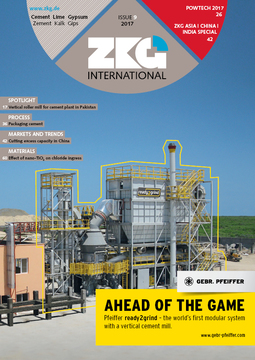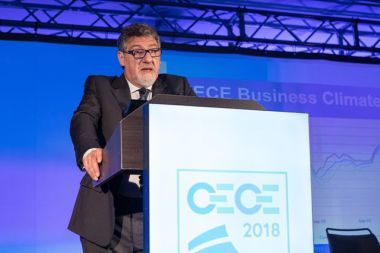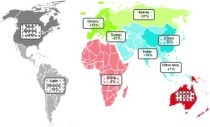Competitiveness Council paves the way for EU industrial policy strategy
An integrated EU industrial policy strategy now seems to be appearing on the horizon. For the first time the EU ministers in charge of economic competitiveness and industry found a consensus about conclusions that call on the EU Commission to provide a holistic EU industrial policy strategy for the future. The unanimous support of member states to make industry policy an issue of highest political relevance was given at the Competitiveness Council meeting held in Brussels on 29.05.2017.
The Council acknowledged that a joint industrial strategy was vital to ensure Europe’s industrial global competitiveness and to cope with the major technology change the industry is facing. The ministers all agreed on some key horizontal actions to be taken targeting issues like access to finance, digitalisation and new business models, or investment in skills and talents. They also agreed that some sectoral focus is needed where necessary. The European Commissioner in charge of industry Elzbieta Bienkowska underlined that all council members proved that they are “friends of the industry” and that the council was now well equipped and ready to prepare a coherent industrial policy, albeit confirming difficult internal discussions within the Commission itself.
“For Europe’s manufacturing industry, this is an important step in the right direction”, says Riccardo Viaggi, Secretary General of CECE, the European Construction Equipment Industry Association. By adopting the conclusions, the Competitiveness Council picked up on a main request of the European manufacturing industry issued in a Joint Declaration co-signed by CECE with 127 other European trade associations.
“Our main request was indeed to give ourselves the means to increase the share of industry in the European GDP to 20 % by 2020. This can only be achieved by outlining and implementing an Action Plan including concrete steps and milestones in a timely manner. This is really close at hand now”, says Mr. Viaggi. CECE very much appreciates that the council had listened to the needs of the industry. “We are all committed to giving our input and stepping up our cooperation with the European Commission, the European Parliament and the Competitiveness Council when they start preparing the actual strategy”.
Background information
The European manufacturing sector which employs over 34 million people across all member states in supply chains comprising hundreds of thousands of SMEs and larger suppliers, is facing considerable challenges. Between 2000 and 2014, the share of manufacturing in total EU output fell from 18.8 % to 15.3 % while 3.5 million manufacturing jobs were lost between 2008 and 2014. In this context and with other countries around the world putting industry at the very top of their political agenda, it is vital for the EU to set the right framework for Europe’s manufacturing sector to grow, be competitive and create jobs in Europe. The European Manufacturing Industry has a huge capacity for research and innovation, boasts a skilled workforce and has earned a global reputation for quality and sustainability. It now needs the support of the European institutions and member states to develop its full potential.
Already in 2013, CECE presented a 10-point action plan for a competitive industrial production in Europe. The major fields of action defined included issues like introducing stronger competi-tiveness-proofing and fitness checks, reducing the administrative burden of complying with EU legislation, ensuring fair competition through better market surveillance or seeking greater international policy alignment to avoid technical barriers to trade.




